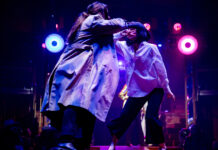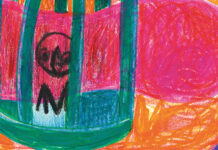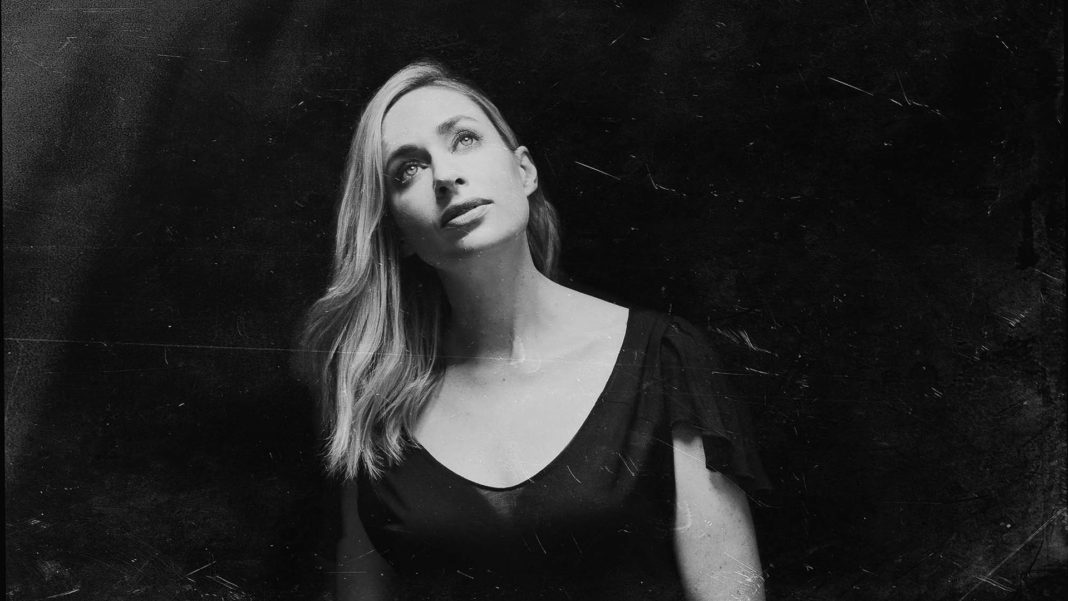“To use a mass as a prism through which to mourn, celebrate, and eulogize our ailing planet and disappearing wildlife — to appeal not to God, but to Nature itself — was very appealing to me.” So says composer Sarah Kirkland Snider when talking about her Mass for the Endangered which was recently released by New Amsterdam and Nonesuch Records.
The work, which was composed as part of a commission from Trinity Church Wall Street, speaks to environmental concerns. In fact, rather than have the Mass speak to God, Mother Earth is to whom the work is addressing. Mass for the Endangered had its world premiere in 2018.
Snider has been commissioned to compose and/or had her music performed by The New York Philharmonic, The San Francisco Symphony, Roomful of Teeth and many more. Amongst her best known compositions are Penelope and Unremembered. This year she was to have the world premiere of Forward Into Light, a new work about the suffragette movement, but the pandemic forced a postponement of that.
I’ve listened to Mass for the Endangered ten times. It is the perfect work for our troubling times. It was the timeliness of the recording’s release where I started my recent phone conversation with Snider. The comments below have been edited for length and clarity.
How do you feel about this record coming out while the earth is sending very serious messages about how endangered the planet and its occupants are right now?
It is crazy how it suddenly became much more intensely topical. I just hope the music creates a space where people can reflect on this reality that we’re in and take whatever is meaningful about it.
When I write a piece of music, I’m not writing for the activist purpose, per se. It’s partly this personal therapeutic need to write music, but also to express my own grief. I’ve always been somebody who cares a lot about nature and the environment. I spend a lot of time composing outside. This was a vehicle for me to write about the loss of control over the environment. I had no idea that Covid was going to happen when I was writing the music, but when it meant we had to postpone the concert and plans for releasing the album, it felt painfully poignant.
Every day the headlines make it clear there’s a lot going on to be concerned about.
The extreme weather, the hurricanes, have been going on for decades. The increase of wildfires has increased people’s attentions to these issues. With Covid, the fact that it jumped from animals to humans has really brought this point home. According to scientists these kinds of diseases are going to rise if we continue the way we are living. The human race has become this species that is actively harming the planet and it is just terrifying to absorb the full weight of it.
How did you and librettist Nathaniel Bellows go about creating this mass?
When I received the commission for the mass, I knew I wanted to write with him. I said, what do you want to write about? He said endangered animals and the environment. Needless to say I leapt at the idea and it felt like a no-brainer. Whenever I have a strong connection the music flows a lot faster. Everything came very quickly relatively speaking. It was the same head space as writing a eulogy – remembering all the things that are special, but also mourning what we’re losing.
Mother Earth takes the place of God in Mass for the Endangered. Why?
If you sub Mother Earth for God, you can make it your own and that’s what really appealed to me about this. I’m not a religious person. I’m far from Catholic and have never been baptized. I don’t believe in God, but I believe in something. I’m not quite sure what it is. That desire to celebrate something larger is very appealing to me in this world when I’m on computers all day and being bombarded with politics and commercialism and capitalism. To get away from that and think about issues in a more spiritual way is very appealing for those who don’t have unfettered access in our daily life.
Music and nature have been inextricably linked since the beginning of mankind. As we move forward into the coming decades, what role can music play in helping us find our way? And what role would you like your music to play in that journey?
It absolutely can help us find our way forward. I think we need music now more than ever – particularly these outdoor concerts that are happening. It is incredibly restorative hearing music live. Just engaging with music is therapeutic and we need it all the more now because we’re feeling so isolated and fearful about the future. I know for myself music has played a really large role in my sanity the past few months.
I think we need much more of getting back to the basics of sharing and storytelling and communal interactions. We’re so isolated, not just now because of Covid, but our obsessions with our phones and computers – and I’m speaking without a hint of judgement because I’m totally addicted to my phone and it’s awful. We’ve got this tiniest of attention spans and need to rush from one dopamine hit to another.
Then you hear a piece of music or see a piece of theatre outside. Getting away from our screens is so important right now and getting back to the art we’ve been making for thousands of years would be really restorative right now. Art has to help us move forward and figure out what we have in common. Art is a great way to find common human experience. We all need to figure out ways to make these things happen. It’s really hard living without it.
Photo of Sarah Kirkland Snider courtesy her website











